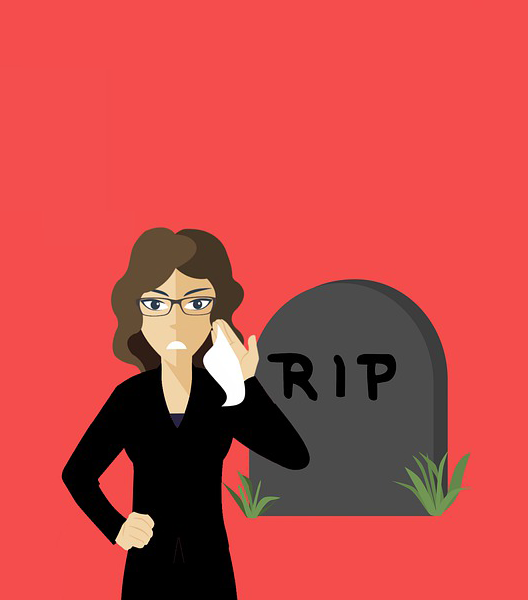Injured Federal Employee | Sughrue Law Firm
Free Consultation for ALL Injured Federal Employees
Toll Free (866) 525-6927
P (412) 391-1629 | F (412) 391-1622
Injury Types
Permanent Injuries
The Federal Employees’ Compensation Act (FECA) provides a schedule of benefits for permanent impairment of certain members, functions and organs of the body such as the eye, arm, or kidney and for serious disfigurement of the head, face or neck. For example, an award of 160 weeks of compensation is payable for total loss of vision in one eye. In addition, compensation for loss of earning capacity may be paid if the employee is unable to resume regular work because of injury-related disability. This compensation is paid on the basis of the difference between the employee’s capacity to earn wages after an injury and the wages of the job he or she held when injured. OWCP may arrange for vocational rehabilitation and provide a maintenance allowance not to exceed $200 per month. A disabled employee participating in an OWCP-approved training or vocational rehabilitation program is paid at the compensation rate for total disability. If the employee’s condition requires a constant attendant, an additional amount not to exceed $1500 per month may be allowed.
For additional information on schedule awards click here.
Temporary Total Disabilities
An employee who sustains a disabling, job-related traumatic injury may request continuation of regular pay for the period of disability not to exceed 45 calendar days or sick or annual leave. If disability continues beyond 45 days or the employee is not entitled to continuation of pay, the employee may use sick or annual leave or enter a leave without pay status and claim compensation from OWCP. When disability results from an occupational disease, the employing agency is not authorized to continue the employee’s pay, i.e., the Claimant is not able to receive continuation of pay. The employee may use sick or annual leave or enter a leave without pay status and claim compensation. Compensation for loss of wages may not be paid until after a three-day waiting period, except when permanent effects result from the injury or where the disability causing wage loss exceeds 14 calendar days. Compensation is generally paid at the rate of 2/3 of the salary if the employee has no dependents and 3/4 of the salary if one or more dependents are claimed.
The term “dependent” includes a husband, wife, unmarried child under 18 years of age, and a wholly dependent parent. An unmarried child may qualify as a dependent after reaching the age of 18 if incapable of self-support by reason of mental or physical disability, or as long as the child continues to be a full-time student at an accredited institution, until he or she reaches the age of 23 or has completed four years of education beyond the high school level.


Death Benefits
If no child is eligible for benefits, the widow or widower’s compensation is 50 percent of the employee’s pay at the time of death, if death was due to the employment-related injury or disease. If a child or children are eligible for benefits, the widow or widower is entitled to 45 percent of the pay and each child is entitled to 15 percent. If children are the sole survivors, 40 percent is paid for the first child and 15 percent for each additional child, to be shared equally. Other persons such as dependent parents, brothers, sisters, grandparents, and grandchildren may also be entitled to benefits. The total compensation may not exceed 75 percent of the employee’s pay or the pay of the highest step for GS-15 of the General Schedule, except when such excess is created by authorized cost-of-living increases.
Compensation to an employee’s surviving spouse terminates upon his or her death or remarriage. A widow or widower’s benefits continue, however, if the remarriage takes place after the age of 55. Awards to children, brothers, sisters and grandchildren terminate at the age of 18, unless the dependent is incapable of self-support, or continues to be a full-time student at an accredited institution, until he or she reaches the age of 23, or has completed four years of education beyond the high school level.
Burial expenses not to exceed $800 are payable. Transportation of the body to the employee’s former residence in the United States is provided where death occurs away from the employee’s home station. In addition to any burial expenses or transportation costs, a $200 allowance is paid for the administrative costs of terminating an employee’s status with the Federal Government.
Contact Us Now for the Help You Need Today!!
Each type of injury is different. Trying to figure out what you’re entitled to isn’t easy. There are so many rules and regulations for various injuries that it makes it difficult to understand what you can be compensated for and by how much.
How do I claim a Schedule Award?
When an injured worker has permanent loss of use of certain body parts or organs, s/he may request a schedule award by submitting a CA-7 Claim for Schedule Award and an impairment rating completed by her/his treating physician. 20 C.F.R. §§ 10.103, 10.404. The impairment rating can only be completed after maximum medical improvement has been reached and must be in accordance with the 6th Edition of the American Medical Association Guides to the Evaluation of Permanent Impairment, referencing the appropriate tables, and citing the date of maximum medical improvement. Impairment ratings may be done in a narrative format. There is not a form for the physician to complete for the impairment rating unless the Claims Examiner has provided one in response to incomplete medical documentation previously submitted. The CA-7 is available online here.
If you are still employed by your Federal agency, complete your portion of the CA-7 and submit it to your employing agency’s Injury Compensation office. They will complete their portion and forward the CA-7 to OWCP.
If you are no longer employed by your Federal Agency, complete your portion of the CA-7 and submit it to OWCP at U.S. Department of Labor, DFEC Central Mailroom, P.O. Box 8300, London, KY, 40742-8300. As is the case with anything you send to OWCP, please note your claim number on every page, send only single sided copies, and be sure to keep a copy for your records. If information is needed from your former employing Federal agency OWCP will contact the agency to obtain it.
How are Schedule Awards processed?
Once the completed CA-7 and the impairment rating have been received, reviewed, and determined to appear complete by the claims examiner, s/he forwards it to the district medical advisor (DMA) for review. In some situations, the Claims Examiner must develop the claim by contacting the claimant, employer, or rating physician for additional information. In some cases, the claimant must be referred to a second opinion medical examination to obtain a complete impairment rating.

Representing Injured Federal Workers Across the Nation
Get advice with Sughrue Law's free 15-minute telephone consultation.

